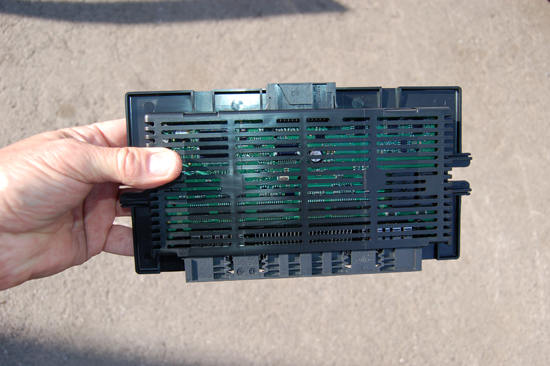 Yes, we know that electronic control over many aspects of modern vehicles is definitely here to stay, but in my garage we can’t help wondering if manufacturers over-complicate things in this area, ‘just because they can’…
Yes, we know that electronic control over many aspects of modern vehicles is definitely here to stay, but in my garage we can’t help wondering if manufacturers over-complicate things in this area, ‘just because they can’…
It’s all very well incorporating high levels of technology into new vehicles, and indeed, for some customers this may be a selling point. However, when those same cars are just a few years old, if a problem arises in the ‘high tech’ bits, it can spell a huge repair cost – and consequently, in many cases the end of the road for the vehicle.
One case in point we encountered recently was that of a BMW 320 (diesel). The owner had noticed that the reversing lamps had stopped working, and brought the car to us for repair. He had assumed that (at worst) rectification would involve installing a couple of bulbs, or maybe a connector or a new switch; all relatively easy and inexpensive to tackle.
However, he had a nasty shock (as we did) when it was discovered that the cause of the non-illumination of the lamps was a breakdown within a multi-system control unit. Renewal of the unit (which cost £351, just for the component, plus our labour to install it), cost a great deal of money relative to the value of the car. If the vehicle had been a little older, the owner might have thought twice about having it repaired.
Crazy, crazy, crazy. So what was wrong with a switch, a length of cable and a few connectors, as used in the good old days? The reversing lamps still used to work, and if they did stop operating, they were cheap and easy to fix. Is this really progress, we ask ourselves once again?
